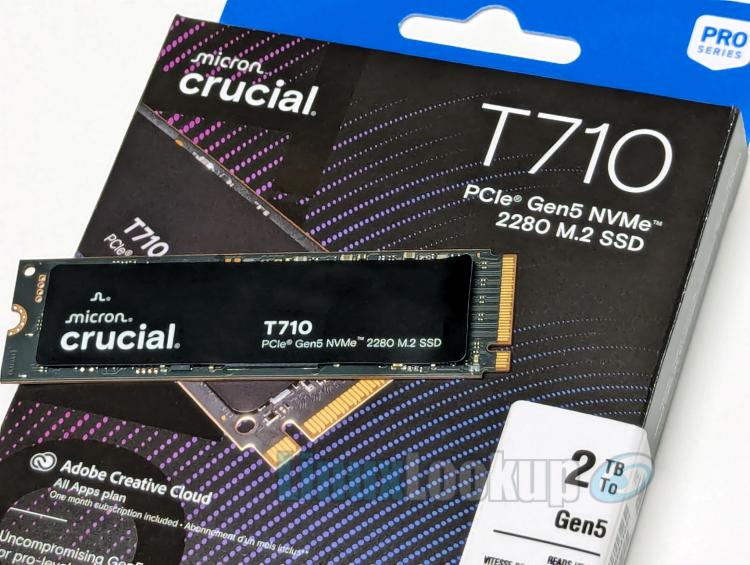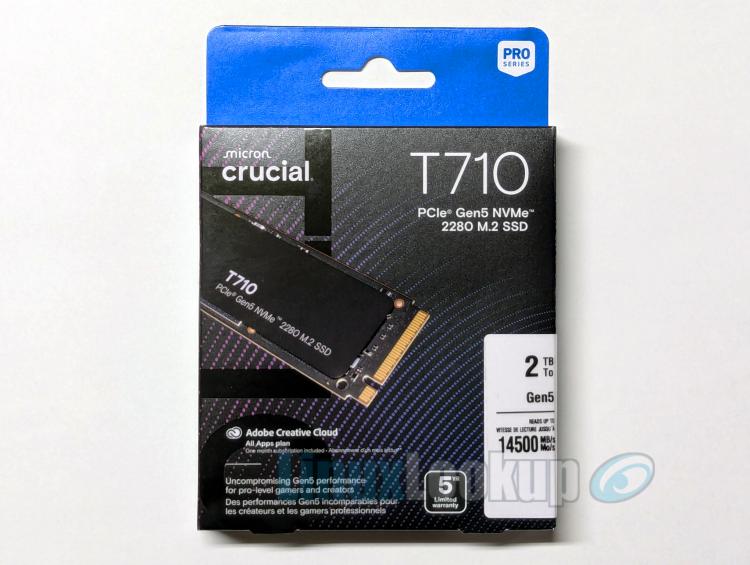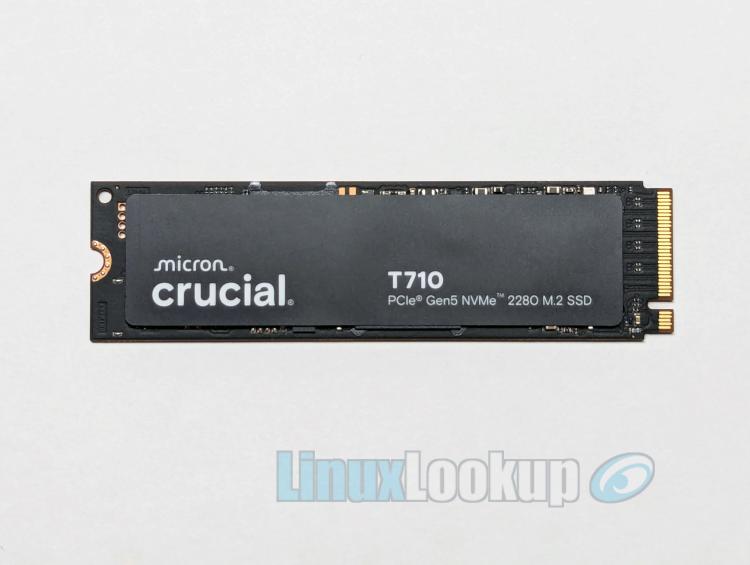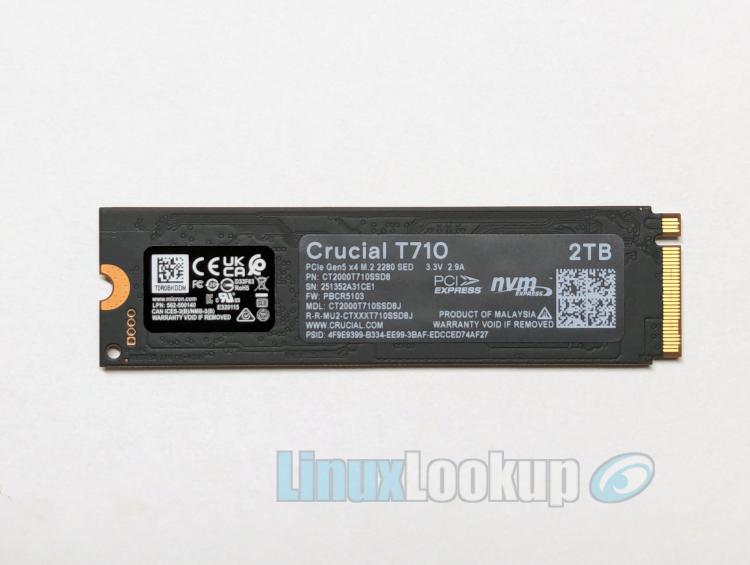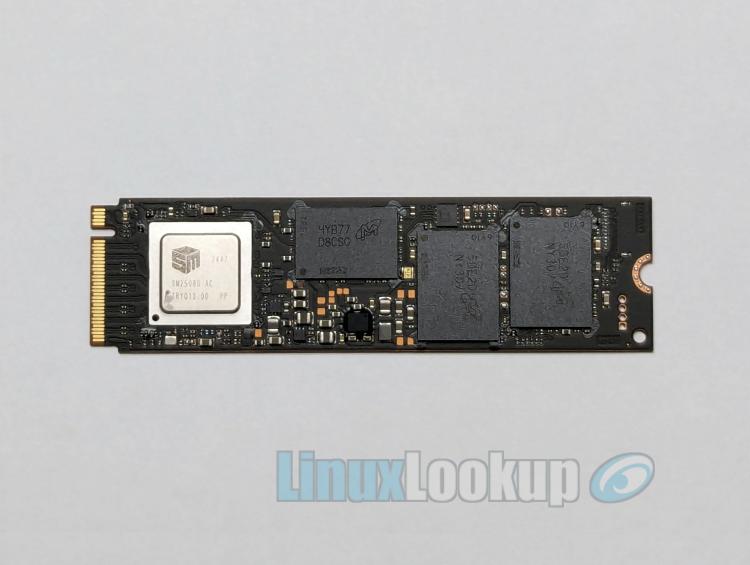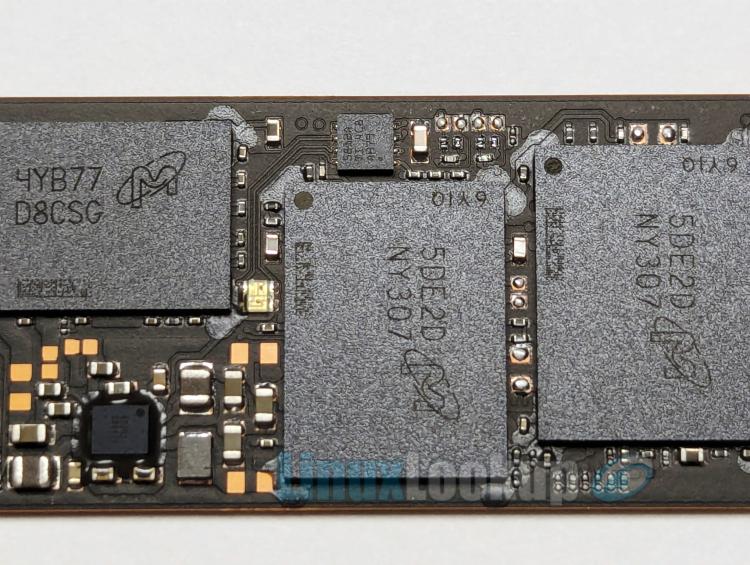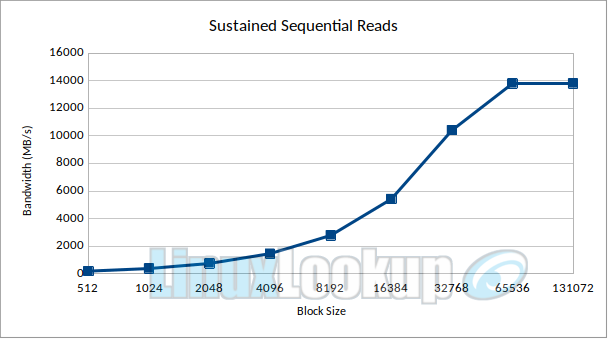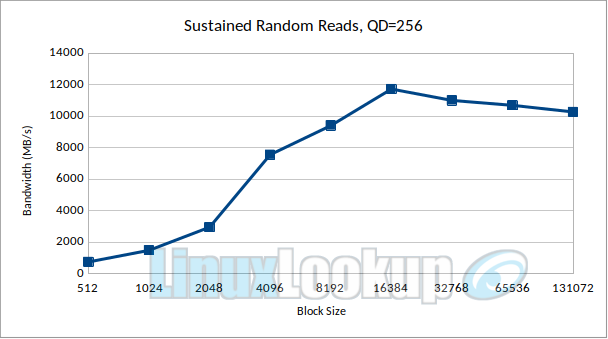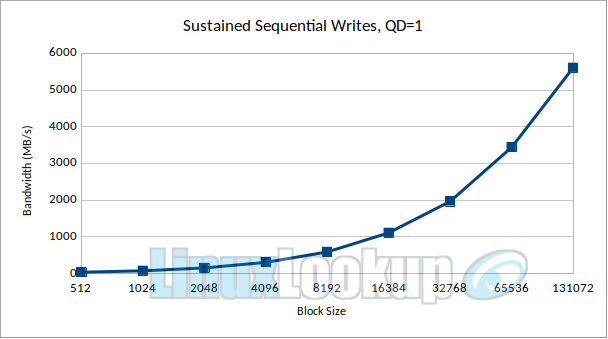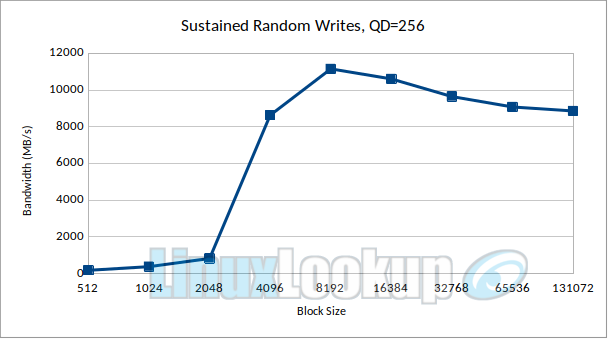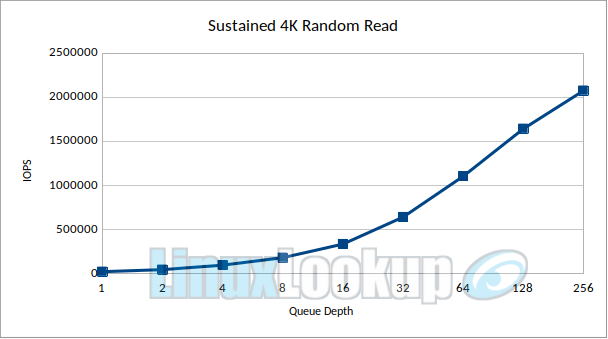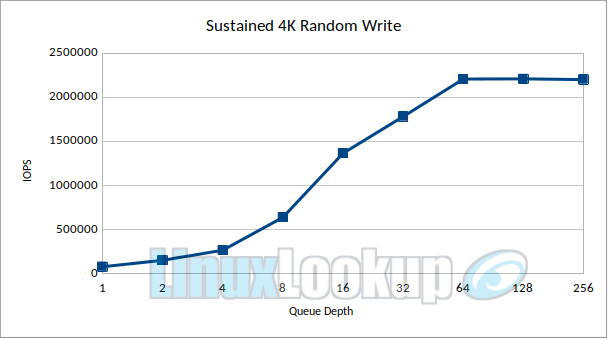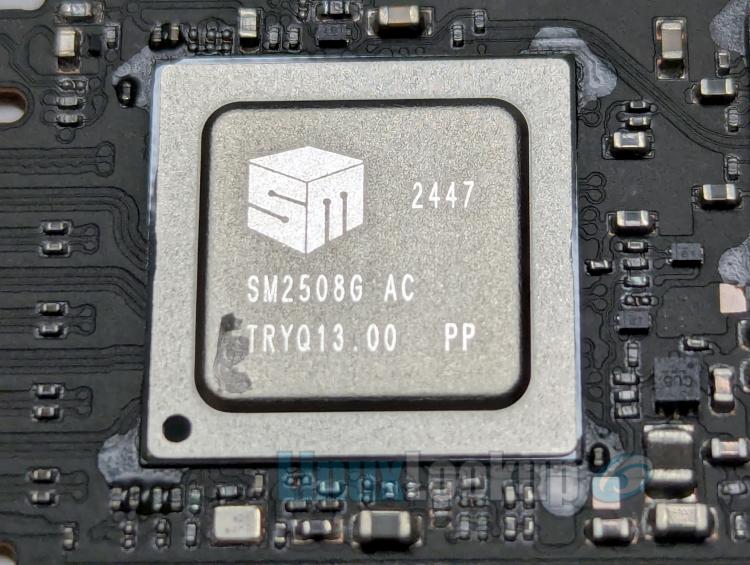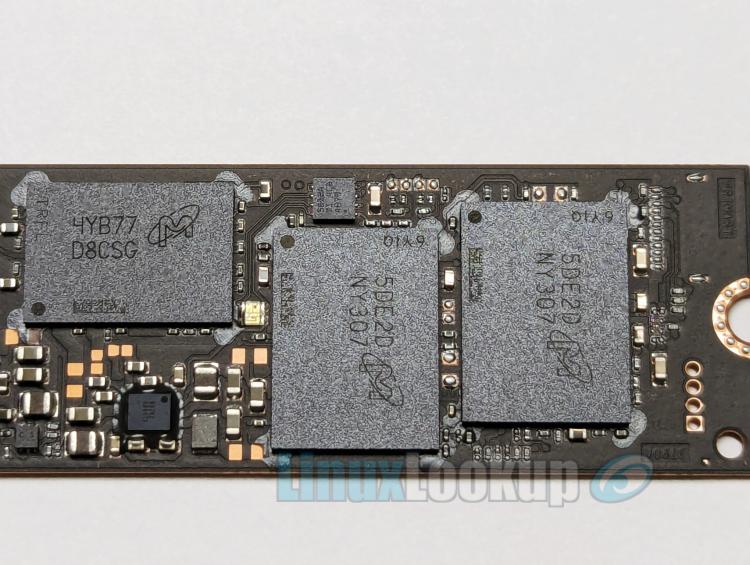Crucial T710 2TB SSD Review
Crucial has wasted little time positioning itself as a leader in the PCIe Gen5 SSD space. After debuting the T700 as its first foray into Gen5 storage and following up with the refined T705, the company now introduces its third-generation, the T710. Designed for enthusiasts and professionals chasing every last drop of performance, the T710 builds on its predecessors with faster throughput, higher random IOPS, and improved efficiency.
In this review, we'll highlight the predominate features of this NVMe solid-state drive (SSD) and provide Linux performance benchmarks.
The Crucial T710 M.2 SSD (non-heatsink) is available in 1TB, 2TB, and 4TB capacities, with MSRPs set at $170.49, $252.99, and $472.99. At the time of writing, the 2TB model featured in this review is listed by several retailers at $229.99 with free shipping.
PCIe Gen5 NVMe M.2 SSDs can generate significant heat, which is why most modern motherboards include heatsinks on their M.2 slots to maintain performance and avoid thermal throttling. For systems that lack this feature, Crucial also sells the T710 in heatsink equipped models, available at a modest price premium.
As expected, the performance of the Crucial T710 Series varies by capacity. The 1TB model is rated for Sequential Reads up to 14,900MB/s and Random Reads up to 1.8M IOPS, while the 2TB and 4TB models offer marginally lower Sequential Reads at 14,500MB/s but higher Random Reads up to 2.2M IOPS.
Write performance shows similar variation. The 1TB drive is quoted to deliver Sequential Writes of 13,700MB/s with Random Writes up to 2.2M IOPS. The 2TB and 4TB models are rated at 13,800MB/s Sequential Writes and up to 2.3M IOPS for Random Writes.
All models deliver exceptional speed, with performance details outlined in the table below. Highlighted is the Crucial T710 2TB model, which is the focus of this Linux review.
| Crucial T710 SSD | 1TB | 2TB | 4TB |
| Sequential Read (Max, MB/s) | 14,900 | 14,500 | 14,500 |
| Sequential Write (Max, MB/s) | 13,700 | 13,800 | 13,800 |
| Random Read (Max, IOPS) | 1.8M | 2.2M | 2.2M |
| Random Write (Max, IOPS) | 2.2M | 2.3M | 2.3M |
The T710 marks Crucial’s third generation of PCIe Gen5 NVMe drives. The original T700 remains a capable performer and a solid value option, while the T705 raised the bar with measurable gains in both sequential and random workloads. The T710 advances things further still, offering higher throughput, greater efficiency, and improved thermal management. Compared to the T705, it’s quoted to deliver up to 42% higher random writes, 28% higher random reads, and 9% higher sequential writes, while also cutting average power consumption by 26.6%, drawing just 8.25W versus 11.25W.
Improvements have also been made to the optional heatsink, now 47% shorter and features a horizontal LED. However, models with the included heatsink have not yet been released, so the exact function of the LED remains unclear.
Physically, the Crucial T710 2TB SSD is an M.2 2280 form factor drive leveraging a PCIe Gen5 x4 host interface and NVMe 2.0 protocol. Its single-sided design, with all key components located on one side of the printed circuit board (PCB), improves compatibility with thin laptops and compact systems while ensuring effective thermal contact with heatsinks.
Examination is straightforward since all components are positioned on one side. Peeling off the front label from the PCB reveals more insight into the Crucial T710 2TB SSD design. Similar to the previous generation T705, Crucial has again decided not to utilize their own proprietary Micron controller, but instead selected the Silicon Motion SM2508 Gen5.
Here we can see the Silicon Motion SM2508 PCIe Gen5 x4 NVMe 2.0 SSD controller, Micron D8CSG (MT53E512M32D1ZW-046 AAT:B) LPDDR4 for caching (1GB per 1TB of NAND flash), and two Micron NY307 (MT29F8T08EQLEHL5-24QA:E) 276-layer G9 3D TLC NAND flash memory packs for storage.
All T710 models share a calculated life expectancy, or Mean Time To Failure (MTTF), of 1.5 million hours. While endurance increases with capacity, the 2TB model is rated for 1,200 TBW (Terabytes Written), which equates to 0.329 Drive Writes Per Day (DWPD) or roughly 657 GB/day over five years, all backed by Crucial’s five-year limited warranty.
Features
Highlight summary:
- AES-256 encryption with TCG Opal 2.01+
- Microsoft DirectStorage optimized firmware
- Dynamic write acceleration
- Multistep data integrity algorithm
- Adaptive thermal protection
- Integrated power loss immunity
- Active garbage collection
- TRIM support
- Self-monitoring and reporting technology (SMART)
- Error correction code (ECC)
- G9 NAND2
- Supports NVMe low power modes (L1.2)
- 5 year limited warranty
Specifications
- Type: M.2 2280 (single-sided)
- Dimensions: 80.1mm x 3.81mm x 22mm
- Flash Controller: Silicon Motion SM2508 Gen5
- Flash Type: Micron G9 NAND
- Interface: PCIe Gen5
- Acoustics: 0dB
- Mean Time Between Failures (MTBF): 1.5M Hours
- Terabytes Written (TBW): 1,200
Performance
Our SSD Linux performance benchmark process does not evaluate drives in a Fresh-Out-of-Box (FOB) state. Most manufacturers specify I/O performance based on FOB benchmarks because the drive has not yet undergone any sustained workload. As a result, these performance measurements from a FOB state tend to be uncharacteristically high. Instead, to provide more accurate measurements, we precondition the drive to a steady state before running our Linux benchmarks. Steady state is achieved by issuing a series of random and sequential preconditioning operations. Although this process takes several hours, the benchmark results are more consistent and reflect real-world performance.
Advertised performance
- Model: CT2000T710SSD8
- Sequential Read: 14,500 MB/s
- Random Read: 2.2M IOPS
- Sequential Write: 13,800 MB/s
- Random Write: 2.3M IOPS
Test System
Linux performance benchmarks were preformed under Arch Linux.
- Processor: AMD Ryzen 7 9700X
- Motherboard: GIGABYTE X870E AORUS ELITE WIFI7
- Memory: 64GB DDR5-6000
- OS: Arch Linux
- Kernel: 6.17.0
- Interface: PCIe Gen5 x4
- SSD Firmware Version: PBCR5103
Note: Linux performance benchmarks were also run against Ubuntu 24.04.3 LTS (Noble Numbat) with kernel version 6.14.0-32-generic. However, slightly better performance was observed when using a newer Linux kernel (6.17.0), these results are shown below.
Temperatures
Adaptive thermal protection safeguards the T710 SSD, with a warning threshold of 86C (186F) and a critical threshold of 88C (190F) according to the SMART attributes.
Drive temperature was recorded at 27C (80F) when idle, fluctuating between 60C~74C (140F~165F) under sustained workloads, and hit a maximum peak of 82C (179F) during benchmarks. These results will vary depending on your choice of M.2 heatsink and system cooling.
Sequential Reads compared to Random Reads with Identical Block Sizes
Sequential Writes compared to Random Writes with Identical Block Sizes
4K Random Read Performance with Varying Queue Depths
4K Random Write Performance with Varying Queue Depth
Gallery
Conclusion
The Good - Pros- Strong all-around performance
- Latest Micron G9 NAND flash memory (9th-generation)
- Single-side design offers better compatibility
- Improved power efficiency & thermals
- Great endurance rating
- Five-year limited warranty
The Bad - Cons
- T710 doesn't offer an 8TB capacity
The Ugly - Issues
- N/A
The Verdict - Opinion
The Crucial T710 represents a confident step forward for Micron’s consumer lineup, combining blistering Gen5 speeds with practical improvements. It’s a standout drive that delivers top-tier performance with excellent efficiency and thermal control, offering some of the fastest throughput available while staying cooler and drawing less power than many rivals. Although current T705 owners may see only modest gains, the T710 delivers 26% better efficiency than the previous generation and firmly establishes itself as Crucial’s new flagship option for enthusiasts and professionals seeking maximum throughput, low latency, and dependable next-gen storage.
